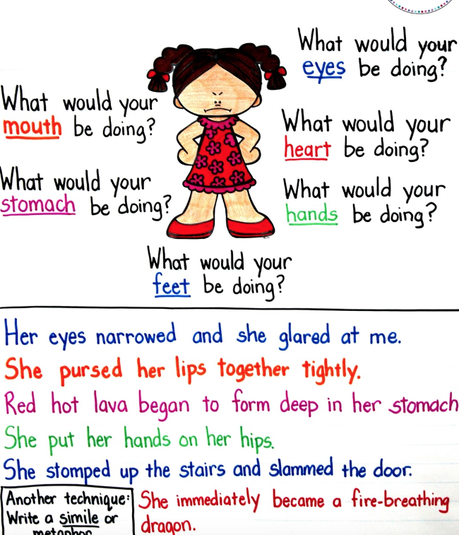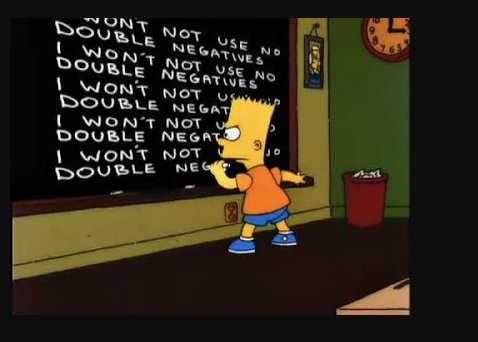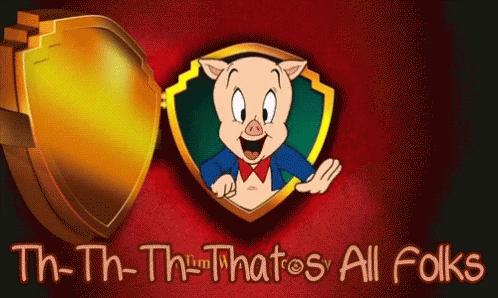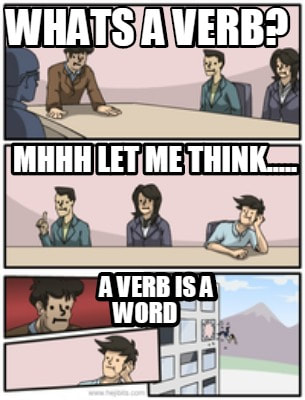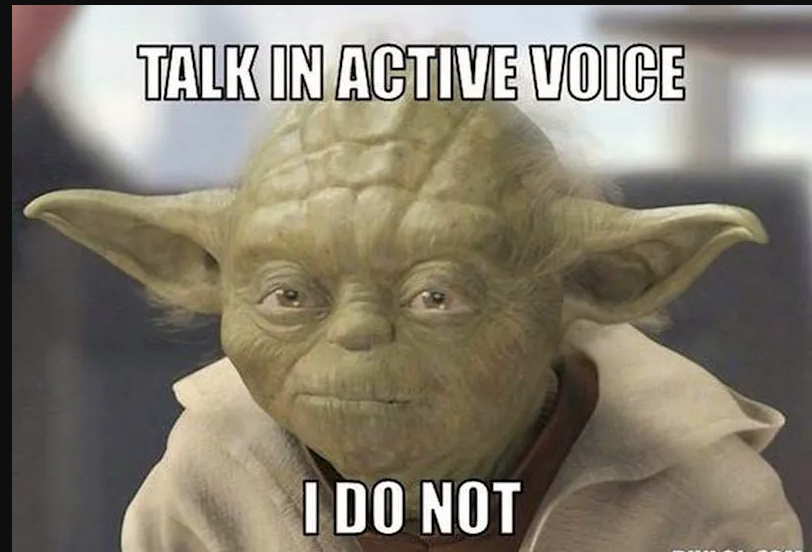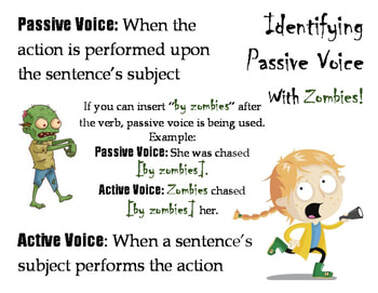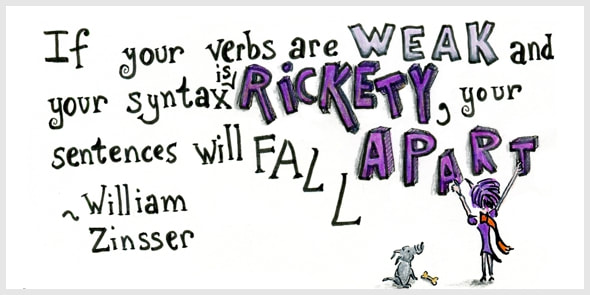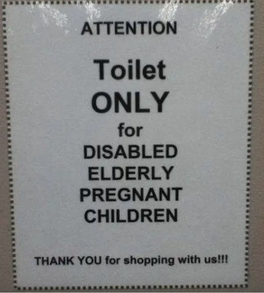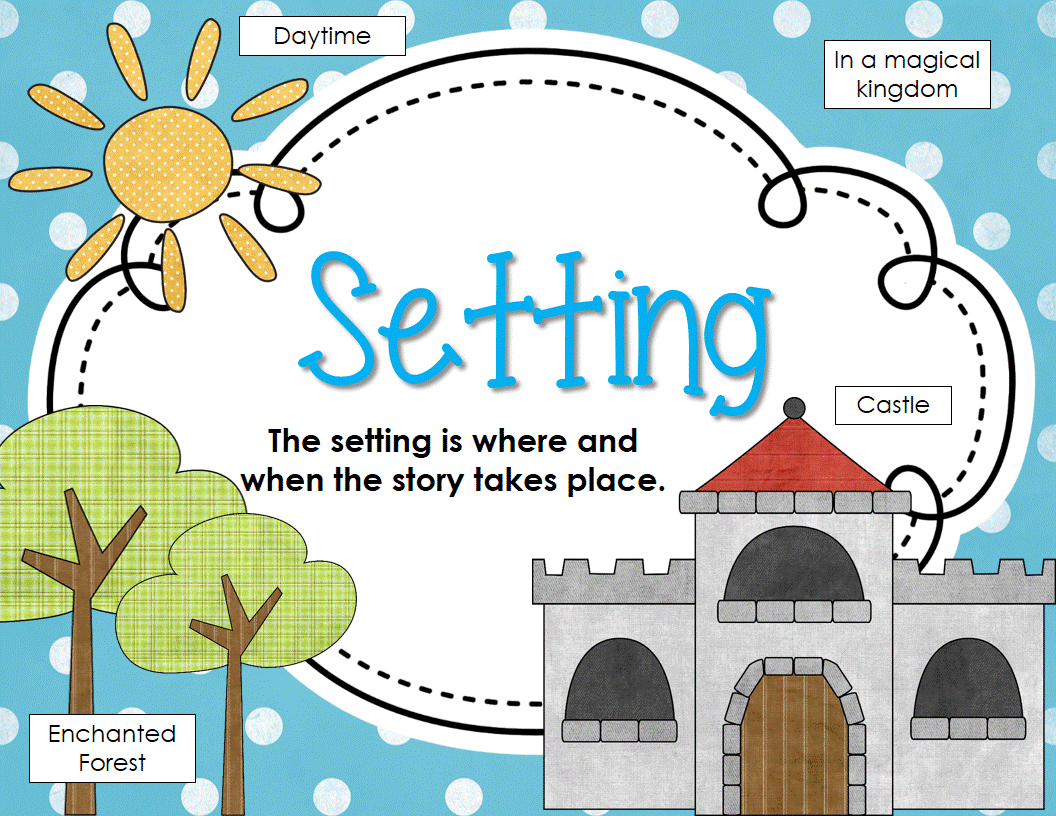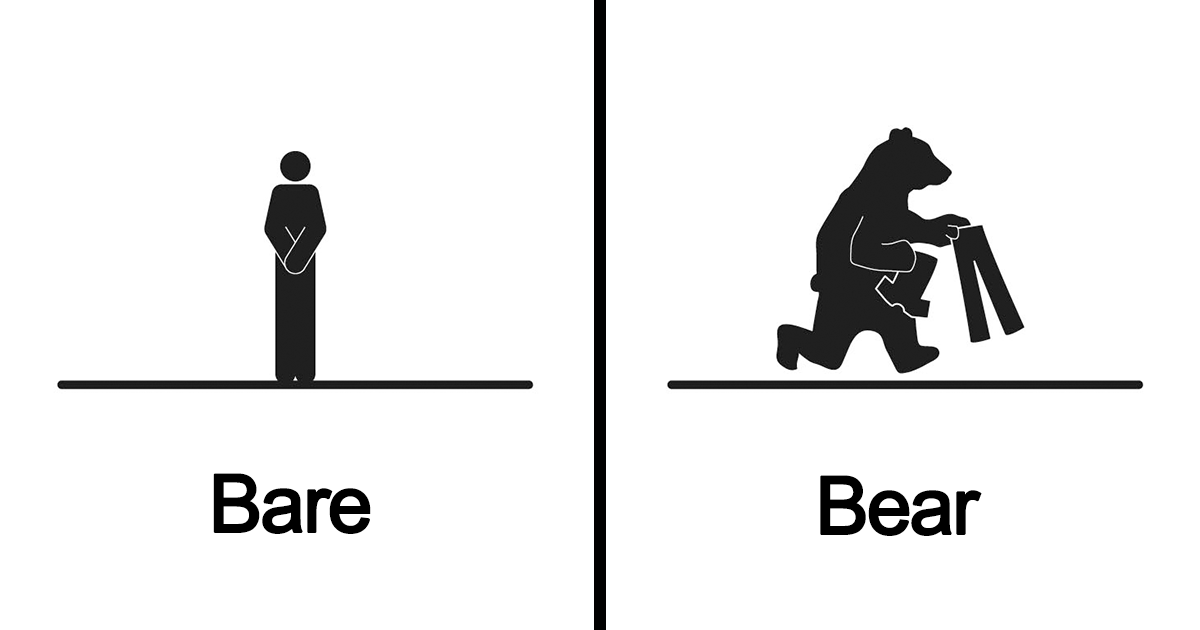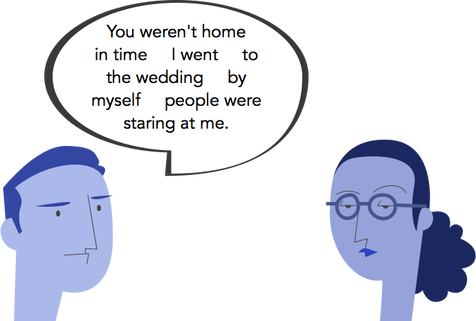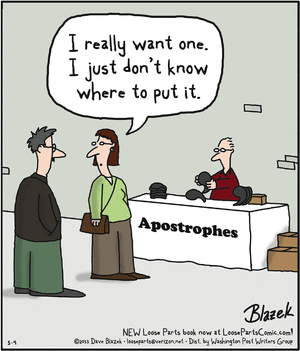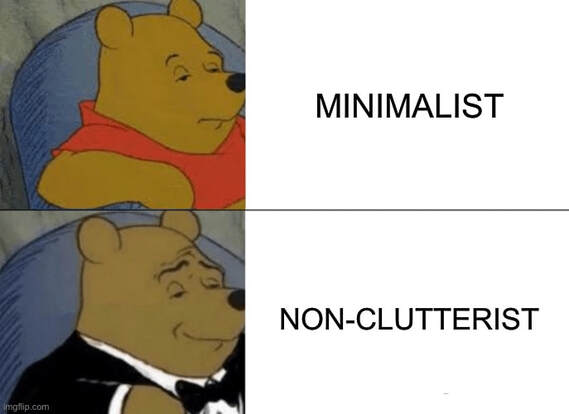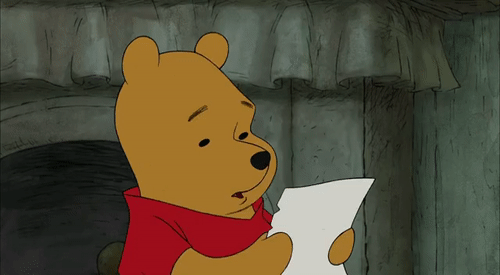AuthorHi, I'm Ray Evans. I'm a certified copyeditor and proofreader. Archives
September 2023
Categories |
Back to Blog
Ah, the alluring allure of adjectives and adverbs - like toppings on a pizza or accessories on a celebrity! They’re as necessary as underwear, yet sometimes, just as uncomfortable. But don't fret, my literary lovelies, for today we embark on a journey to master these pesky word ninjas and add some pizzazz to your prose! First, let's define our posse of parts of speech. Adjectives: those descriptive divas that modify nouns, making them more specific and snazzy. Adverbs: the sneaky sidekicks that tweak verbs, adjectives, or even other adverbs, adding nuance like a well-placed scarf or a sassy fedora. But beware! When unleashed without restraint, these rascals can quickly turn a sleek, simple sentence into a Mardi Gras parade of verbosity. So, let’s dive into the nitty-gritty of curating your very own adjective and adverb wardrobe. Trust me, you’ll thank me later. Choose Wisely, Young GrasshopperJust like your outfits (well, most of them), not all adjectives and adverbs are created equal. Aim for the ones that pack a punch - the little black dress or the tailored suit of the word world. Seek specificity and steer clear of fluff. Instead of "very big," go for "colossal" or "immense." Give the reader an HD image, not a pixelated Polaroid from the 80s. Less Is More,In writing, as in life, moderation is key. Nobody likes a showoff who slaps on a gallon of cologne or flaunts enough bling to blind a bat. In the same vein, don’t overload your prose with adjectives and adverbs. The goal is to complement and enhance, not drown your writing in a sea of superfluous flounce. Show, Don't Tell (But Sometimes, Do Tell)"Show, don't tell" is the mantra of every writer worth their salt (and those aspiring to be worth it). Use adjectives and adverbs to create a cinematic experience for your reader. Don't tell them the character is sad; show them by describing the tear-streaked cheeks, the trembling lips, or the shattered porcelain of their once-pristine poker face. But remember, sometimes the best option is to embrace simplicity and let the verb do the heavy lifting. If your character "sprints," we can infer they’re moving quickly, no "furiously" or "rapidly" needed. Beware the Dastardly Double Negative"Non" and "dis" might be tiny, but they can wreak havoc like a toddler with a marker. When using adjectives and adverbs, don’t turn a positive into a negative, and then back into a positive. It's like wearing stripes and polka dots together – it's just not right. "Unravel" instead of "not entangle," for example, will save your readers from a linguistic rollercoaster. So there you have it,So, there you have it, my adoring adjective aficionados and audacious adverb admirers! By choosing
wisely, practicing restraint, showing (and sometimes telling), and avoiding those dastardly double negatives, your writing will positively sparkle like a disco ball of delight. And remember, as you sashay down the literary runway, a well-placed adjective or adverb can make all the difference.
0 Comments
Read More
Back to Blog
Ladies and gentlemen, gather 'round, because today we're going to dive into the thrilling world of... wait for it... verbs! I know, I know, you're on the edge of your seat, but try to contain your excitement. You might just learn how to make your writing more dynamic, engaging, and so awe-inspiring, readers won't be able to put your book down. Verb TensesNow, let's start by discussing verb tense. I mean, who doesn't love discussing the past, present, and future? It's like a high school reunion, but for your verbs. Your verb tense sets the stage for your story, determining whether your readers feel like they're right there in the action or listening to grandpa's tale about walking uphill both ways in the snow. Are you writing about something that happened back when bell-bottoms were in style? Use the past tense! Need to describe a present situation, like the feeling of sweet relief when the barista finally calls your name for that triple-shot espresso? Present tense is your ticket. And if you want to transport your reader to a utopian future where automated robots have taken over proofreading (gasp!), the future tense will be your trusty companion. The age-old battle between active and passive voice. Now, let's tackle the age-old battle between active and passive voice. In one corner, we have the active voice – the Chuck Norris of sentence construction, kicking butt and taking names with its direct, forceful action. The passive voice, on the other hand, sits in the shadows, quietly weaving its web of ambiguity like a sneaky spider. But you know what? Even the passive voice has its place in the world, just like a well-timed dad joke at the dinner table. The key is knowing when to unleash the action hero or employ the subtle saboteur. For example, let's say you're writing a gripping thriller. Which sentence hits you harder: "The spy chased the villain through the streets" or "The villain was chased through the streets by the spy"? If you picked the first one, congratulations! You've just experienced the adrenaline rush of the active voice. If you're ever doing self-editing and unsure if you're using active or passive voice, you can just apply the zombie test below to figure it out quickly! ⏬ Verb TipsNow that we've covered the basics, let's dive into some verb-boosting tips and tricks that will turn your writing into a literary fireworks display.
Back to Blog
Ah, the humble comma, the unsung hero of punctuation. Or is it the bane of a writer's existence? I can never remember which. But either way, if you're a fiction writer, you're bound to encounter this squiggly little line that's always ready to leap into action, saving your readers from the dreaded wall of text. So, without further ado, let's explore some tips for mastering the mighty comma and improving the flow and clarity of your writing. The Mischievous Comma: Splicing SentencesMuch like a mischievous imp that sneaks around splicing sentences, the comma splice is a common error in writing. It occurs when two independent clauses are joined with just a comma, and not a coordinating conjunction. Just remember that if your clauses can stand on their own, they deserve more than a comma between them. Give 'em a little something extra – a semicolon, a period, or at the very least, a coordinating conjunction like "and" or "but." Dialogue DancerThe comma is a master of the dance floor when it comes to dialogue. Think of it as the punctuation cha-cha partner to quotation marks. When you're writing dialogue, commas are necessary for marking the end of a statement, question, or exclamation before a dialogue tag. Make sure the comma is inside the quotation marks, or it'll be left without a dance partner, and nobody wants that. The only exception to this is when the quoted material ends is an interrogative sentence: Example : "Who stole my nachos?" he demanded, glaring around the room. Oxford Comma: A Punctuation ControversyThe Oxford comma – or the serial comma, as it's known to its fans – is the comma used immediately before the coordinating conjunction (usually "and" or "or") when listing three or more items. Some people love it, some people hate it, but either way, it's got a loyal following that would rival the latest boy band craze. For clarity's sake, I'm pro-Oxford comma, but you should pick a side and stick to it. Consistency is key in punctuation, much like a good punchline. The Comma is a Clause WhispererLike a skilled animal trainer, the comma is excellent at wrangling independent and dependent clauses. When a dependent clause comes before an independent one, use a comma after the dependent clause to separate the two. However, if the independent clause comes first, no comma is needed. See? It's like magic – the kind that's performed by a street magician in Times Square at midnight. Example: Because she couldn't find her keys, Lucy was late for work. Pausing for EffectHave you ever listened to a story and thought, "Wow, this could really use a dramatic pause"? That's what commas do in writing. They let your reader take a little breather, allowing them to fully absorb the impact of your words. However, don't overdo it – too many commas can leave your readers gasping for air. In Conclusion,remember that the comma is like the drummer of the punctuation band, keeping the rhythm and flow
of your writing smooth and groovy. With practice and a little help from these tips, you'll become a comma connoisseur in no time. And who knows? You might even end up with groupies lining up to ask you about the Oxford comma debate.
Back to Blog
We all know how much I love fiction, and I'm here to give you some tips that are going to blow your minds! Or, at the very least, teach you how to write a fantastic ending to your stories. Buckle up, because here we go! Tie up those loose ends, but not too tight!You know what really grinds my gears? When a story leaves loose ends dangling like yesterday's laundry. It's irritating! So, be sure to wrap up those plot points, but remember: don't make it too neat. Life's messy, so let your story's conclusion reflect that. A little ambiguity never hurt anyone, right? Give your characters their just desserts.I'm not saying you should reward the good guys and punish the baddies (although that's always a crowd-pleaser). What I mean is: give your characters an ending that feels true to their journey. But please, for the love of all that's holy, don't let them drone on about their emotions for five pages. Nobody has time for that. A twist? Yes, but only if it makes sense.Nothing spices up a story like a good twist, but a twist for the sake of a twist is just...well, twisted. Make sure it's properly foreshadowed and doesn't feel like you pulled it out of thin air. The last thing you want is a reader saying, "Oh, come on! Really?!" Avoid the ol' deus ex machina.Listen, I get it. You've written yourself into a corner, and you don't know how to get out. But please, resist the urge to have a magical solution just "happen" to solve everything. Your readers will roll their eyes so hard they'll see their own brain cells. Bring it back to the beginning.You know what's satisfying? When a story comes full circle. Have a callback to something from the beginning of your tale, maybe a symbol or an event. But don't be too obvious about it. Subtlety is key, my friends. Evoke emotion, but don't overdo it.If your reader doesn't feel anything at the end of your story, well, you've done something wrong. That being said, don't force the emotions. Let your characters and the story do the talking. Or else you risk coming off as a melodramatic mess. And trust me, no one wants that. End with a bang, not a whimper.Lastly, make sure your ending has impact. It doesn't have to be an explosion, but it should leave a
lasting impression on your reader. If they close your book with a shrug, well, you might want to rethink that conclusion. And there you have it! Seven tips to create a memorable and satisfying ending to your story. Follow these, and you'll have your readers clamoring for more. Or at least not throwing your book across the room in frustration. That's a win in my book!
Back to Blog
I don't wanna go off on a rant here, but when it comes to storytelling, it's not just about the characters or the plot. Oh no, it's about the setting too, like adding the perfect dash of paprika* to your grandma's goulash. Now let's sink our teeth into this tantalizing topic and discuss the importance of setting in your story and how to bring it to life – because, my friend, no one wants their readers to feel like they're wandering aimlessly in a poorly sketched out world like some half-drunk Magellan. First up, Know Your World Like the Back of Your Hand, or better yet, like the back of George Costanza's head.It doesn't matter if your story takes place in the Serengeti or on Mars, or even in a bizarre alternate universe where people brush their teeth with mayonnaise instead of toothpaste. Just make sure you understand every nook and cranny, and that you can accurately convey it to your readers. Otherwise, your masterpiece might end up like a Picasso painted with a blindfold on. Ah, yes, Show, Don't Tell.You've heard it a thousand times, but it's as true as the fact that getting a paper cut from a parking ticket is the most infuriating thing ever. Describe your settings in vivid detail so that readers can visualize the world you've created – unless you want them to feel like they're trudging through a foggy moor in desperate search of an exit, like they're stuck in a never-ending, miserable game of Pac-Man. Now, Use All Five SensesLike a spider monkey in a sensory deprivation tank. Don't just rely on sight; mix it up! Show your characters shivering from the cold, or mention the tantalizing aroma wafting from a street vendor. Dive into the taste of a freshly brewed cup of coffee or the sound of rustling leaves in the breeze. This is your chance to create an immersive experience so that your readers can taste, smell, hear, and feel every bit of your literary masterpiece. Incorporate Setting into Dialogue like Shakespeare on a Red Bull.Your characters' conversations should reflect their surroundings, whether it's complaining about the unbearable heat of a desert or discussing the finer points of fishing in the Arctic. This not only helps set the scene but also makes your dialogue more dynamic and engaging, ensuring your readers never feel like they're stuck in a snooze-worthy symposium with Ben Stein. Lastly, Remember that Less Can Be MoreLike a pint-sized Yoda dispensing sage advice. It's tempting to describe every blade of grass, but you
don't want to overwhelm your readers with details either. Strike a balance between giving them a sense of the world and letting their imaginations run wild. If you get it just right, your story will feel as satisfying as cracking open a pistachio without breaking a nail. And that's it, folks – the Cliff's Notes to creating a setting that's as vivid as the neon lights of Vegas and as engaging as a game of Twister at a nudist colony. Remember to consider the importance of setting in your story, and bring it to life by knowing your world, showing not telling, using all five senses, incorporating setting into dialogue, and finding that sweet spot between too much and too little detail. Now go forth and create worlds that'll make J.R.R. Tolkien green with envy! *Days before writing this, I discovered that paprika is just dried and ground-up red peppers. My entire life I assumed there was a paprika tree or paprika out there!
Back to Blog
Hey there, literary aficionados! It's your trusty proofreader and copyeditor here, bringing you the ultimate lowdown on the top grammar faux pas that'll have your readers cringing faster than a decaf- drinking beatnik in a coffeehouse poetry slam. So buckle up, word-wranglers, and let's dive into the top 5 grammar mistakes every fiction author should avoid like a telemarketer at dinnertime. Subject-Verb DisagreementPicture this: you're crafting an epic tale of adventure, suspense, and romance when, lo and behold, your subject and verb are about as in sync as Milli Vanilli during a live performance. You see, subject- verb agreement is to writing what rhythm is to music: essential. When your subject's singular, your verb should be too; likewise for plural subjects. For example, "The team of superheroes fights crime," not "The team of superheroes fight crime." Remember, folks, it's all about harmony—unless you want your prose to read like a William Shatner rendition of "Rocket Man." Homophonic HysteriaAh, homophones: the linguistic equivalent of identical twins you can't tell apart in a lineup. These are words that sound the same but have different meanings and spellings (e.g., "there," "their," and "they're"). Mixing them up is like mistaking George Foreman for his five sons—also named George. Remember that "your" shows possession and "you're" is short for "you are," so writing "Your going to love this book" is like inviting someone to a surprise party at the wrong address. The Run-on Sentence RunaroundEver read a sentence so long it feels like you're watching a never-ending "Lord of the Rings" director's cut marathon? That's the run-on sentence for you. Joining two or more independent clauses without the proper punctuation (e.g., a comma or semicolon) or conjunction is like cramming too many clowns into a VW Beetle—it just doesn't work. Break up your clauses, and your readers won't need to catch their breath like a chain-smoking asthmatic on a 5k run. We'd fix the example above as follows: " You weren't home in time, so I went to the wedding by myself; people were staring at me." Or: " You weren't home in time and I went to the wedding my myself. People were staring at me. " Or you could fix it this way: " I want a divorce." An Apostrophe CatastropheIt's a bird, it's a plane, it's… the wild, unnecessary apostrophe!
Think of apostrophes as the cilantro of the punctuation world—a little goes a long way. Reserve them for contractions (e.g., "it's" for "it is") and possessives (e.g., "Shakespeare's quill"). But remember, they're not for plurals. Writing "I love dog's" is like trying to solve a Rubik's Cube blindfolded—you're only going to confuse yourself and everyone around you.
Back to Blog
Hey, folks! Welcome to another riveting episode of, "How to Make Your Fiction Sing like Pavarotti on Red Bull.*" Today, we're diving headfirst into the labyrinthine world of adjectives and adverbs. Strap in, because it's about to get as wild as Keith Richards at an all-you-can-eat buffet of descriptive language. 1) Select the crème de la crème of adjectives and adverbsNow, I don't want to go off on a rant here, but if you're going to use adjectives and adverbs, make sure you're choosing the Rolls-Royce of words, not the jalopy. Do some linguistic window-shopping, and pick the words that give your prose that million-dollar gleam. Think about it like you're dressing for the Oscars; you wouldn't show up in a burlap sack, right? Investing a thesaurus can really help out with this. 2) Timing is everythingListen, gang, adjectives and adverbs are like the seasoning of your narrative soufflé. Too little, and it's as bland as an accountant's daydream. Too much, and it's like a Tabasco-soaked habanero that sets your readers' taste buds aflame. Use those words judiciously, so the reader can savor the subtlety of your literary culinary masterpiece. 3) Show, Don't TellRemember, amigos, writing is like a grand illusion, and you're the Houdini of the printed word. Don't spoon-feed your readers a thesaurus-worth of adjectives and adverbs. Instead, slip them into your narrative like a card shark with a deck full of aces. Show your reader the humid, verdant jungle, don't just tell them it's "really, really green." 4) Throttle back on repetitionThe English language is a beautiful, sprawling tapestry, not some cookie-cutter assembly line. Avoid overusing the same adjectives and adverbs as if they were the only two spices in your pantry. Get creative, like a kid in a candy store with a pocket full of quarters, and explore the linguistic smorgasbord that's at your fingertips. 5) Beware of "ly" adverbsFinally, let's address the elephant in the room – the infamous "ly" adverbs. Sure, they can be enticing, like a siren's song luring your prose onto the rocks of mediocrity. But don't be fooled. Use them sparingly, if at all, or you'll find yourself stuck in a literary quagmire so deep you'll need a crane to pull you out. 6) And that's all folks!So there you have it, my literati friends – a five-step plan to make your writing sparkle like the sun on
the Côte d'Azur. Use your adjectives and adverbs wisely, and your readers will be as captivated as a kitten with a laser pointer. Now, go forth and conquer the world of fiction with your newfound descriptive prowess. And that's the way it is!
Back to Blog
Hey there, word-wranglers and story-spinners! It's your friendly neighborhood proofreader and copyeditor, here to help you navigate the treacherous waters of scene-setting like a literary Christopher Columbus (minus the whole discovering-new-continents thing). Picture this: It's you. Deep in the throes of your latest literary masterpiece when suddenly, you hit the dreaded...gasp...description conundrum! How do we create a setting that's more captivating than a hypnotist at a sleep clinic, without turning our tale into a five-volume encyclopedia? Here’s how! Step One: Sensory Salsa Dancing 🕺🏻The first rule of setting the scene is to create a sensory fiesta for your reader. Don't just stick to the ol' humdrum sights and sounds. Get up close and personal with your characters' senses, and let your reader experience the world you're building. Is the rain a gentle caress, or does it pelt them like a thousand icy needles? Can they smell the tangy aroma of oranges wafting from a nearby grove, or is it the pungent scent of a dubious alleyway? Don't be afraid to tango with taste, touch, and even temperature! A sensory smorgasbord will leave your reader hungry for more. Step Two: Meticulous MinimalismNow, you don't want your reader drowning in an ocean of adjectives like a hapless, wordy Titanic. To avoid this, think of description as a fine wine: too little and you leave your reader parched, too much and they'll be stumbling through the story in a stupor. Be selective with your words, and let your reader fill in the gaps with their imagination. Remember, brevity is the soul of wit, and also the key to keeping your reader's attention. Step Three: Mood Swings and Tonal TidbitsThe art of setting the scene isn't just about painting a pretty picture; it's about setting the emotional stage for your characters to play upon. Description can be a powerful tool in shaping the mood and tone of your story. Is your scene tense and suspenseful? Use sharp, staccato phrases to keep your reader on the edge of their seat. Or perhaps you're penning a dreamy, romantic interlude? Try using soft, flowing language to sweep your reader off their feet. Step Four: The Dynamic Duo - Action and DescriptionA well-executed description can be as thrilling as a high-speed car chase or as enchanting as a moonlit waltz. But how do you strike the perfect balance between description and action? The answer lies in blending the two like a literary smoothie. Weave descriptions into your action, and let the setting become a living, breathing part of your story. The rustle of leaves in the wind can mirror a character's mounting unease, and the golden glow of a sunset can cast a warm light on a tender moment. By intertwining action and description, you'll create a dynamic, immersive world that will keep your reader spellbound. Putting it all togetherSo there you have it, my aspiring scribes! By utilizing sensory detail, practicing minimalism, setting
the mood, and blending action with description, you'll be able to create settings that transport your readers like a first-class ticket on the Literary Express. Now, go forth and conquer the written word, but remember: with great description comes great responsibility. Happy writing!
Back to Blog
Greetings, dear authors, word wizards, and punctuation aficionados! In the grand pantheon of literary blunders, punctuation pitfalls rank right up there with the most perilous traps that lurk in the shadows, just waiting to ensnare unsuspecting authors. Fear not, for I will act your grammar sherpa, your trusty guide, in this romp through the thicket of prose, am here to help you avoid these treacherous snares and emerge victorious in your battle with the written word! 1) The Apostrophe ApocalypseAh, the humble apostrophe, a small but mighty mark that has flummoxed even the most seasoned of writers. "It's" or "its"? "You're" or "your"? Worry not, my dear friends, for I shall illuminate the path to apostrophic enlightenment. Remember: "it's" is a contraction for "it is," while "its" is the possessive form of "it." Similarly, "you're" stands for "you are," and "your" signifies possession. So, whenever you're in doubt, mentally replace the word with its full form and see if it still makes sense. If not, switch gears and try the other option. 2) Comma ConundrumsThe comma, that tiny scamp, can be a source of great consternation for many a writer. Misplacing it can lead to confusion, misunderstanding, the occasional bout of unintentional hilarity, or even bad book reviews. Here are a few tips to keep your commas in check: a. The Oxford Comma Controversy: The Oxford comma, also known as the serial comma, is used immediately before the coordinating conjunction (usually "and" or "or") in a list of three or more items. Though its usage is a matter of hot debate, I say, why not play it safe and use it to avoid ambiguity? b. Introductory Phrases: If you start a sentence with an introductory phrase or clause, separate it from the main clause with a comma. For example, "After finishing his breakfast, the lion went back to sleep." See how civilized our lion friend is with his proper comma usage? 3) The Exclamation Point ExtravaganzaExclamation points are like hot sauce: a little goes a long way.
Overusing them can make your writing seem overwrought or melodramatic. Use them sparingly and reserve them for moments of genuine surprise, excitement, or strong emotion. And please, for the love of all that is grammatically sacred, avoid using multiple exclamation points in a row! One will do the job just fine. In conclusion, my dear aspiring Hemingways and Austens, punctuation need not be the bane of your literary existence. With a little vigilance, a dash of humor, and the guidance provided in this exploration of common punctuation pitfalls, your prose will soon be the toast of the literary world! Happy writing!
Back to Blog
Are you ready to embark on the journey to create more engaging and believable characters through dialogue? Well, gather around, my dear word wizards, and let's explore how you can write the most dazzling, convincing dialogue for your characters while avoiding the pitfalls of caricatures and stereotypes. Listen to the Music of SpeechPeople have their unique ways of talking, don't they, Sparky? You need to eavesdrop on real conversations to understand the nuances and rhythms of everyday speech. Pay close attention to the hesitations, interruptions, and idiosyncrasies of how people communicate. And remember, nobody's perfect – natural dialogue isn't grammatically flawless. Keep it SnappyNobody wants to read a meandering soliloquy (unless you're Shakespeare, and even then…). So, keep your dialogue brief and to the point. Make your writing concise, and let your reader's imagination do the heavy lifting! Give Each Character a Distinct VoiceCharacter development is an essential aspect of fiction writing. Each character should have their unique voice. Consider how your character's background, education, and personality will affect their speech patterns. Avoid blending voices – you don't want Prince Harry to sound like John Falstaff! Write Accents and Dialects with RespectAs you venture into the world of dialects and accents, be cautious, my dear author. Balance authenticity with readability, and steer clear of phonetic spelling. Instead, sprinkle your dialogue with a few choice words or phrases that capture the essence of the dialect without going overboard. Show, Don't TellThe words spoken between characters should serve as a window into their soul, you know what I mean? Like when Anthony Blanche tells a joke, it gives you a glimpse into his innermost thoughts and feelings. That's what great dialogue is all about, revealing a character's emotions through their words and actions, instead of just flat out telling the reader how they feel. Master the Art of SubtextAs the great philosopher John Keating once said, "No matter what anybody tells you, words and ideas can change the world." Subtext is the art of saying one thing while meaning another – it's the unsaid emotions and thoughts that lie beneath the dialogue. Master the art of subtext, and your characters will come alive with complexity and depth. Beware of Dialogue ClichésClichéd dialogue can drag down a brilliant story like an anchor. Instead of falling back on overused phrases and worn-out expressions, strive for originality and freshness in your dialogue. Challenge yourself to invent new ways for your characters to communicate – it's like sculpting with words! Edit, Edit, Edit!Finally, after you've written your dialogue, it's time for a little editing.
Read your dialogue aloud to see how it sounds. Trim unnecessary words, make sure each character's voice is consistent, and pay attention to the rhythm of the speech. Don't be afraid to be brutal – good writing is rewriting, after all. And there you have it, my dear authors, and make your dialogue sing with authenticity and character. Happy writing! |
 RSS Feed
RSS Feed



